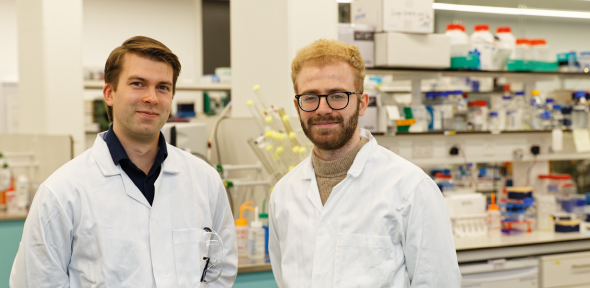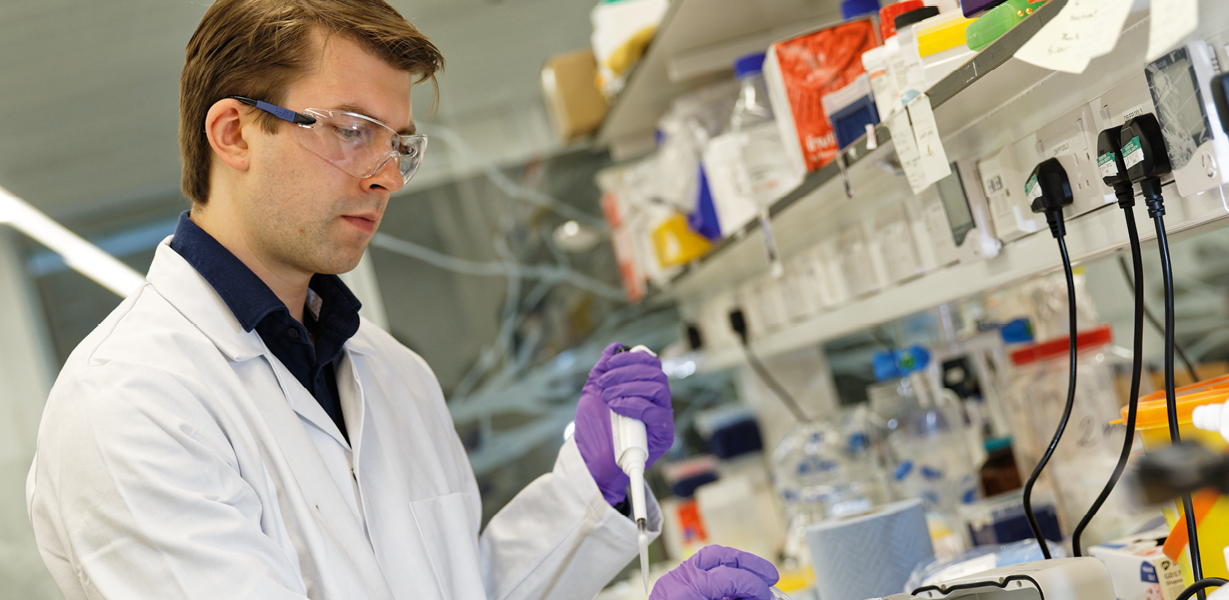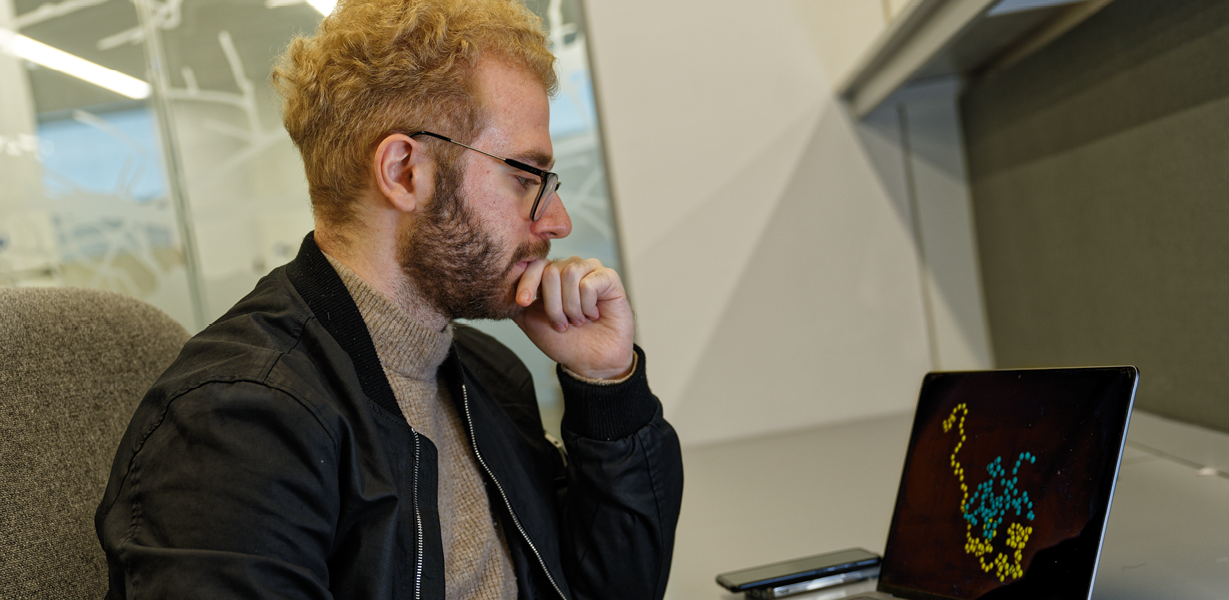
Klavs Jermakovs & Hussein Murtada taken by Nathan Pitt ©University of Cambridge.
Klavs Jermakovs and Hussein Murtada are our first two Una Finlay scholars. They are studying Parkinson's disease, how it behaves, and potential new drug candidates.
Klavs Jermakovs
Knowles lab

‘You can’t see the forest for the trees’ means missing out on the overall picture by focusing on the small details. To avoid this, Klavs takes a bird’s eye view approach to proteins by assessing how millions of different protein variants behave and tries to unravel why some generally misbehave.
The field of neurodegenerative disease research needs large datasets that describe the diversity of disordered proteins. In particular, Klavs wants to build these datasets and focus on protein aggregates that are formed in diseases such as Parkinson’s disease. His hope is that, with his datasets, it will be possible to find the fundamental mechanisms of protein misbehaviour.
“The purpose of examining proteins and how they interact on the large scale is to observe patterns that would otherwise be hidden,” he explains.
Klavs uses an unusual hybrid of computational models and laboratory data in his research. He tests large numbers of compounds and uses the results in tandem with computational methods to unravel the rules that govern protein misfolding and aggregate formation.
Klavs comments: “I’m excited to do research on the interface between computational and experimental methods. My belief is that by combining the two it is possible to solve questions that previously have been out of reach.”
One of the proteins he aims to study during his PhD is alpha synuclein, which is the disordered protein that malfunctions in Parkinson’s disease. The protein forms aggregates which damage pathways in the brain.
This data-driven research carries on from work that Klavs started during a six-month internship in Tuomas Knowles’ laboratory in 2022 while completing a Master’s degree at the University of Tartu, Estonia.
Hussein Murtada
Vendruscolo Group

Hussein discovered some promising small molecule drug candidates for Parkinson’s disease during his Master’s degree with the Vendruscolo group in 2022. He is tackling a more intricate issue for his PhD: the identification of drug candidates capable of binding to disordered proteins.
This is highly relevant in neurodegenerative disorders like Alzheimer’s and Parkinson’s where certain proteins misfold and aggregate which contributes to disease progression. Typically, proteins fold into stable states with pockets, and drugs are designed so that they fit into these pockets akin to a lock and key mechanism.
In contrast, disordered proteins have dynamic and unpredictable structures and lack a reliable ‘pocket.’ Diseases like Alzheimer’s can arise when these proteins undergo misfolding, posing challenges for developing treatments.
Currently, there are no widely available treatments for Alzheimer’s or other diseases associated with disordered proteins. However, Hussein’s research aims to simulate the behaviour of these proteins by writing software that uses machine learning and molecular dynamics. He hopes to identify small molecules that will bind to the computer model that could be potential drug candidates. A drug candidate for this challenging protein would represent a significant advancement in the field of molecular pharmacology.
This is based on the ‘disordered binding’ mechanism discovered in the Vendruscolo Lab, paving the way for potential breakthroughs in developing effective therapies for neurodegenerative diseases.
Hussein comments: “I am optimistic that our research could unlock numerous avenues for groundbreaking drug discovery. By delving into the realm of disordered proteins, we aim to uncover potential treatments for diseases that currently lack effective therapies. My aspiration is that this work will create a significant impact, offering hope and new possibilities for patients and researchers alike.”
Finlay Scholars
Mr R Derek Finlay (Emmanuel 1952) founded the Una Finlay laboratory in 2016 in memory of his wife, who passed away from Alzheimer’s disease. A further gift last year will support a number of postgraduate studentships, hosted by Emmanuel College.
This article first appeared in Chem@Cam magazine Winter 2023 Issue 67 pg 14.
